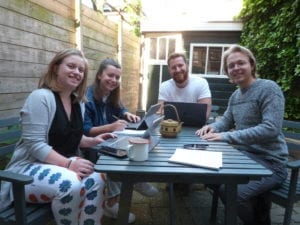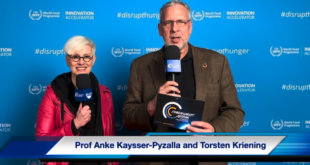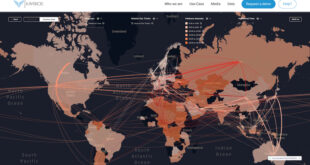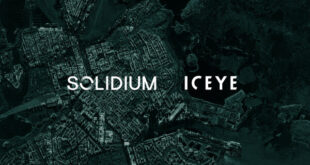
By Luca Ike, Corvin Illgner, Chiara Moenter and Lise Selles
What do you see when you look up into the sky? Is your heart filled with wonder and excitement? Do you think about what humanity is capable of? Or are you reminded of how vast the universe is? When we look up into the sky, we see the opportunities that outer space holds. The developments that we as a species could thrive upon. However, these opportunities are in danger because of the threats and problems regarding space. Issues that we need to face and tackle now, before it is too late.
Just as much as Earth, outer space needs a consensus regarding sustainability. Issues in all fields, such as the economical, environmental, and political are arising fast – unregulated space mining, increasing space traffic, space debris, etcetera. This is why our team (Chiara Moenter, Lise Selles, Corvin Illgner, and Luca Ike) created the initiative SDG 18 – Space for All. To find out more on our initiative and what we stand for visit our website sdgspace.org or read through this previous SpaceWatch.Global post.
Last week we conducted a UN75 Dialogue, an online discussion, bringing together experts in this field. Our panellists Agnieszka Lukaszczyk, Michelle L.D. Hanlon, Tomas Hrozensky, Pedro Russo, Adam Rogers, Romana Kofler, and Omar Hernández discussed the importance of space, its issues and whether space should be added to a global agenda or not. We would like to give you some insights into the most important statements of the dialogue.
The protection of outer space is crucial for activities that go beyond what one might first think of. It is important for policies and sectors that support socio-economic development, public safety and public health, showing that we cannot reach the first 17 SDGs without harnessing space properly. However, with this being said it was pointed out that the SDG agenda is a closed agenda and it is therefore not possible to add another SDG. Rather than adding a new SDG to the 2030 agenda, its possible addition to the next global agenda was discussed. It was also mentioned that every nation benefits from space right now (e.g. GPS), even if they are not the ones launching the satellites. This means every single nation has a responsibility to its environment.
We need to create more awareness about the need for the protection of outer space. By spreading the word and making people aware of certain issues, they are more likely to accept and embrace change for a better future. Space is a tool, and if we want to continue using it, we have to protect the environment where this tool is operating. Firstly, both the general public and decision-makers will have to understand that space activities bring along a lot of benefits. Right now public support for space activities is not that strong. The public needs to be educated about how important space is. UN involvement and space as a more prominent aspect on the global agenda, does not just help achieve all the SDGs, but it helps us generate public support which politicians need in order to put money towards space activities. Governments need to have the political will to explore space and spend money on this, and this will only be created once the general public advocates for it. Secondly, there is already a quantity of existing freely accessible data – many countries just have a lack of awareness that these exist and how to utilise the data and tools properly. This comes back to a lack of knowledge which needs to be addressed, not only for the public, but also on governmental level. What we need is active cooperation between the public and private sector. We can not have space activities without a global level of partnership. Up to now, most of the development has been from the public sector. But in the future, we also need a framework on how to properly work with private partnerships.
To end it on a positive note, in the last few years there have been developments when it comes to the protection and peace-keeping of outer space. Both UNOOSA and UNCOPUOS have done a great job working on this. Space nations, but also the private sector, have shown a bigger interest in the long-term sustainability of space activities. We need to play our part with the tools that have been developed, and then we can move on to other, broader international agreements.
This dialogue was the first step and it is important to share the outcomes with the world and its decision makers. Therefore, we are currently drafting a report that will be presented to the UN General Assembly in September, containing the necessary future developments to tackle the problem of protection and sustainability of outer space. Additionally, we are looking into opportunities on how to further promote the protection of outer space whilst creating a platform where individuals can join our cause. If you want to be part of a global movement and want to support us visit our website sdgspace.org.





